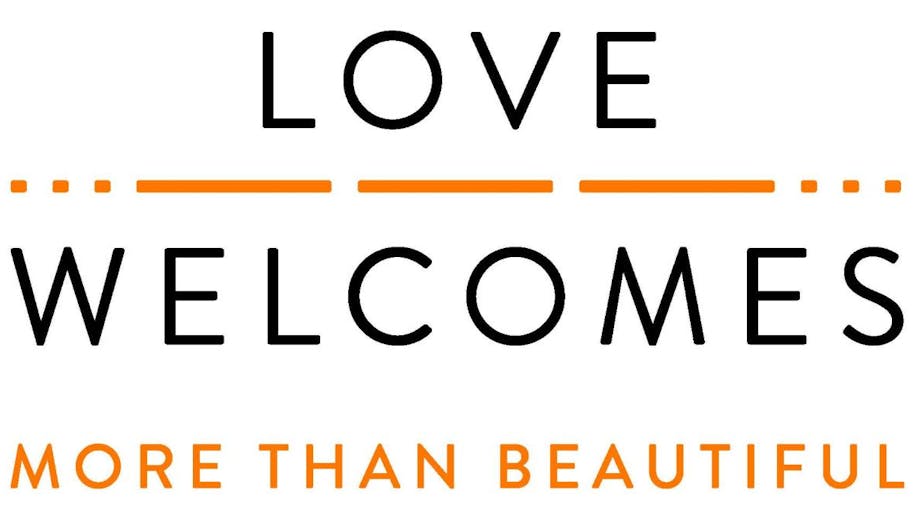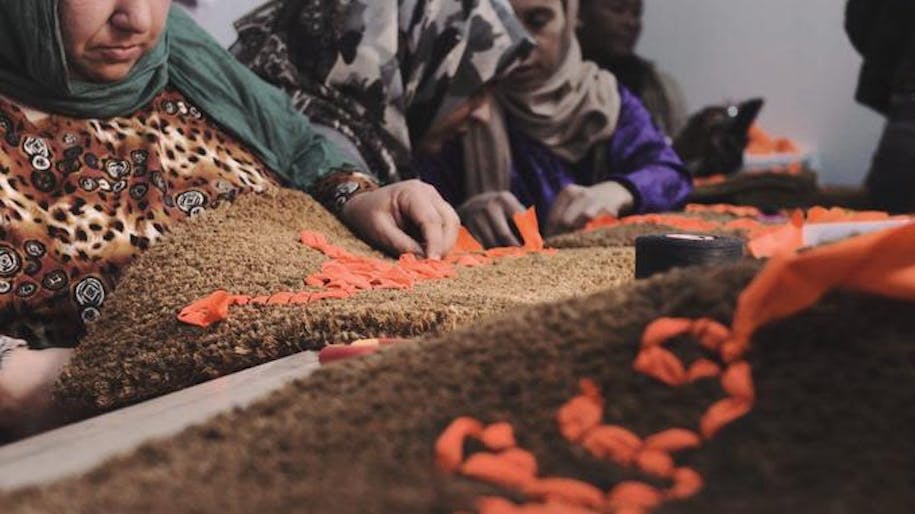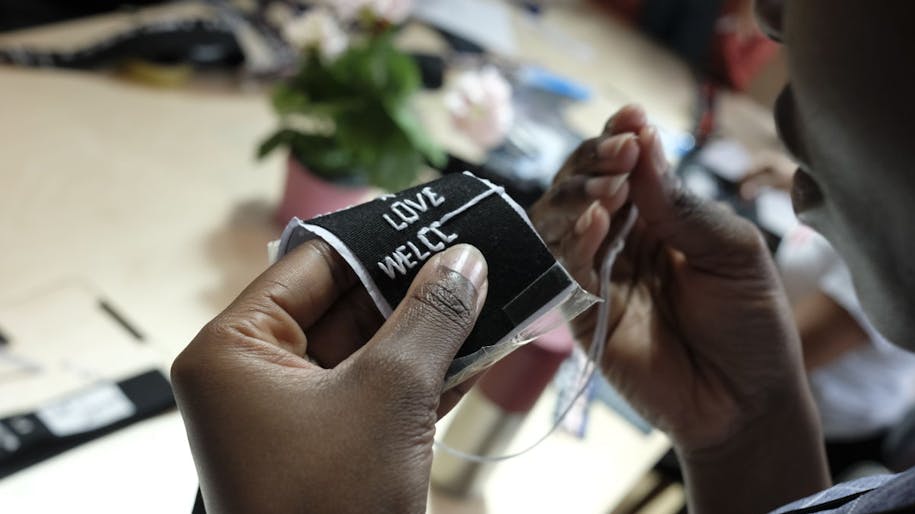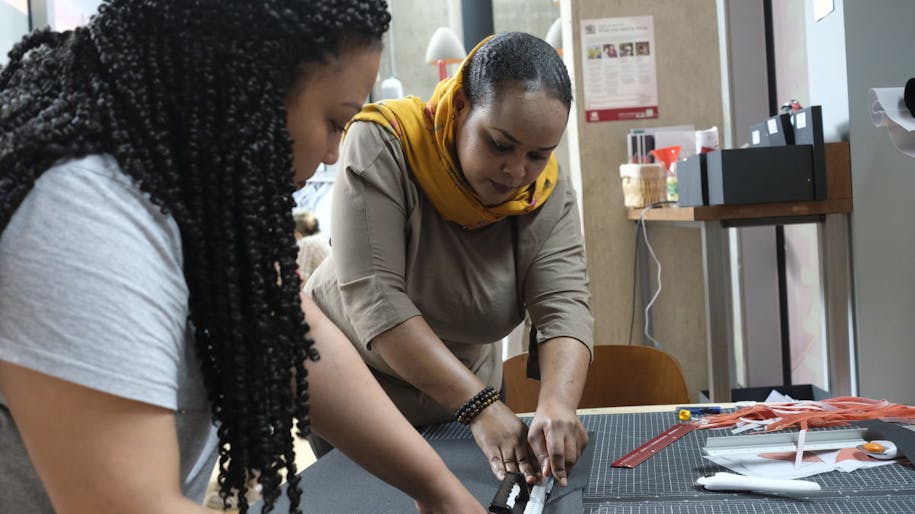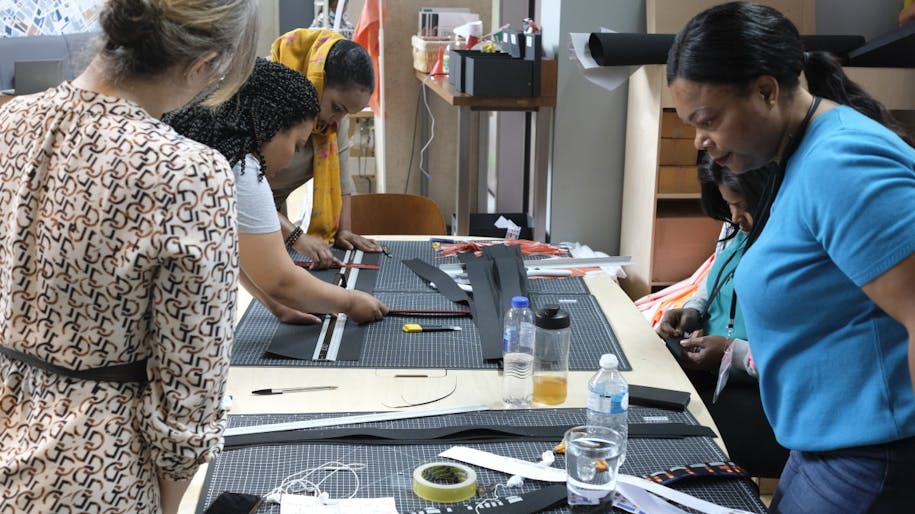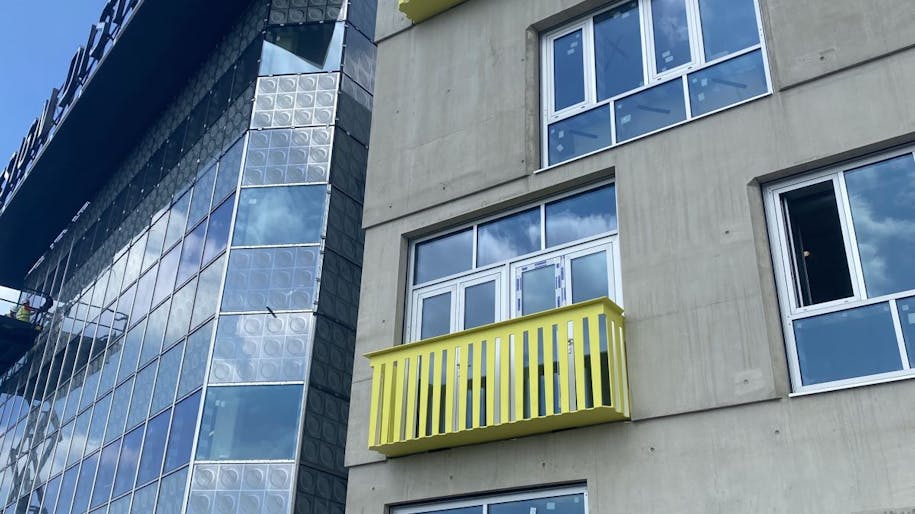
Meet the Tenants: Abi Hewitt, CEO of Love Welcomes
As part of a series of interviews profiling Design District’s tenants, we talk to co-founder and CEO of Love Welcomes - Abi Hewitt, about female empowerment and support.
Not all good things come with good origin stories. When you buy a handwoven cushion or hand-painted planter from Love Welcomes, however, you can be sure you’re supporting an organisation that’s making the world a better place. Newly based in building A3 designed by Adam Khan architects, Love Welcomes is a creative social enterprise helping refugee women rebuild their lives by providing skills training, mother and baby supplies and access to health, legal and business support.
Since its founding in 2017, Love Welcomes’ products and good work have drawn much attention, leading to collaborations with the likes of Banksy and The Edge. The artist and guitarist have worked with Abi and her team to produce an exclusive welcome mat and a guitar strap, each made by refugee women and featuring strips of upcycled life-vest worn in perilous journeys across the Mediterranean.
Design District: Hello Abi, we’re so pleased to be welcoming you and the Love Welcomes team to Design District. Please could you tell us a bit about your background and how the organisation got started?
Abi Hewitt: I previously worked for an American social enterprise that helped women coming out of sex trafficking, addiction and prison rebuild their lives by providing safe and secure accommodation and employment. A trustee of the social enterprise had visited Lesvos in Greece several times and invited the founder and myself to see if we could replicate the model for women living in refugee camps. A small group of us went to various camps in Greece to see if there was any chance of creating something and launched Love Welcomes as a response to the refugee crisis in Greece and throughout mainland Europe.
"Our mission is to change the perception and treatment of refugees around the world by sharing a successful model focusing on people’s dignity, inclusion, and economic social well-being” - Abi Hewitt, Love Welcomes.
DD: Do you remember the moment you knew this was what you wanted to do?
AH: I had visited the camp for one day and the next day was getting ready to go in again. I took a shower and realised I was crying. I couldn’t immediately work out why as I’d visited refugee camps before. The reason, I realised, was that I’d witnessed such hopelessness in the Greek camp. Unlike the others I’d been to, the people living in this one had absolutely nothing to do all day — there was no reason for anyone to wake up, no sense of how their life could change for the better. It was at that moment I knew there was a serious need and that something could be done.
DD: Who else was involved in setting up the business at the beginning?
AH: I consider my co-founders to be the women of the camp who trusted us from the start and were our first employees. There was a core group of five women who believed in us despite having no reason to. They just wanted to see what we were talking about, but also they made me promise that I would not leave within a month. They’d experienced many organisations who promised so much but couldn’t deliver. I appreciated their honesty, so we made promises to each other.
DD: Where did you find the most support starting out?
AH: The biggest support at the beginning came from a very small group of creative problem solvers who wanted to think of realistic ways we could both confront a huge problem and make life better for a small number of people. Financial support was very hard at the beginning, so we developed our model to include partnerships that made our products more desirable, thereby increasing awareness and support.
DD: What were the biggest hurdles you faced establishing Love Welcomes?
AH: Laws for refugees and laws about refugees; they change all the time and are often so complicated. It’s a challenge to remain on top of the changes and incorporate them into your business model. Public opinion of the situation also shifts regularly. At the moment there is a lot of negative media and social media commentary about refugees, often driven for political reasons. This is the total opposite of our experience, where people are wanting to create a better life for themselves and their children. They want to work and help build a positive society and they want their children in school and learning.
DD: Why have you chosen Design District for Love Welcomes’ new workshop?
AH: Because I want our team to feel inspiration and to be surrounded by other creatives. It is a fantastic location with incredible transport links and facilities. We are excited about our neighbours and being part of this community.
DD: Do you have plans for your Design District space beyond its function as a workshop?
AH: Love Welcomes will be hosting lunches once a month that will be a chance for each member of the team to cook food from their home country for us all to experience. Two thirds of our team's time is spent creating our products and one third is spent learning various life skills such as conversational English, creative photography and digital and financial literacy.
Find out more about Love Welcomes on their website and on Instagram @lovewelcomes.
